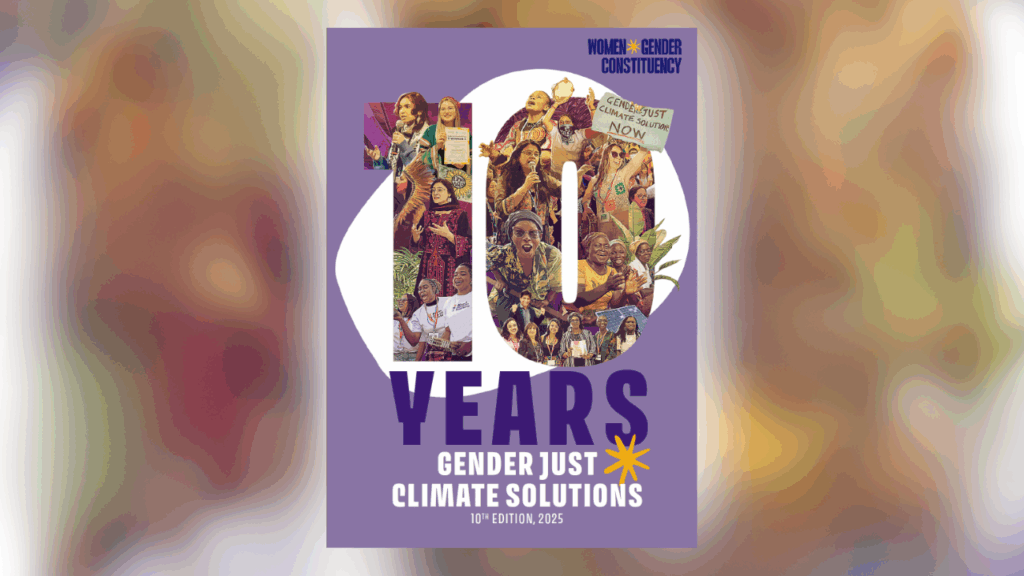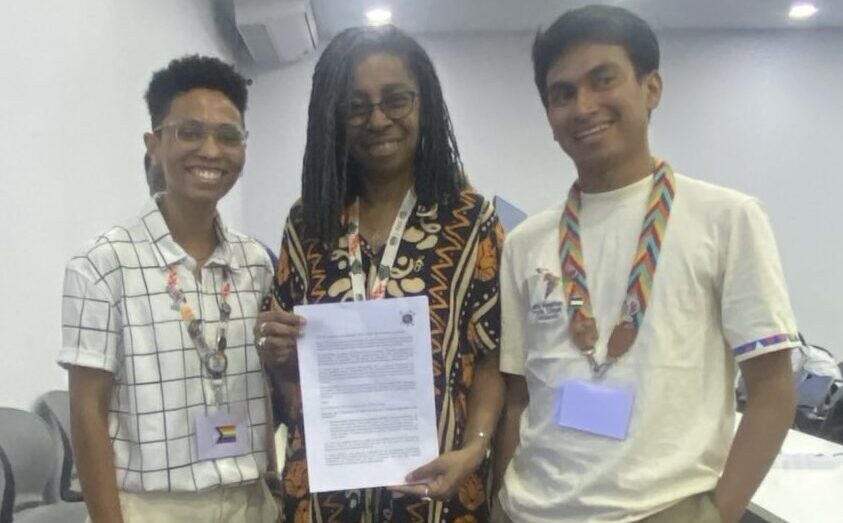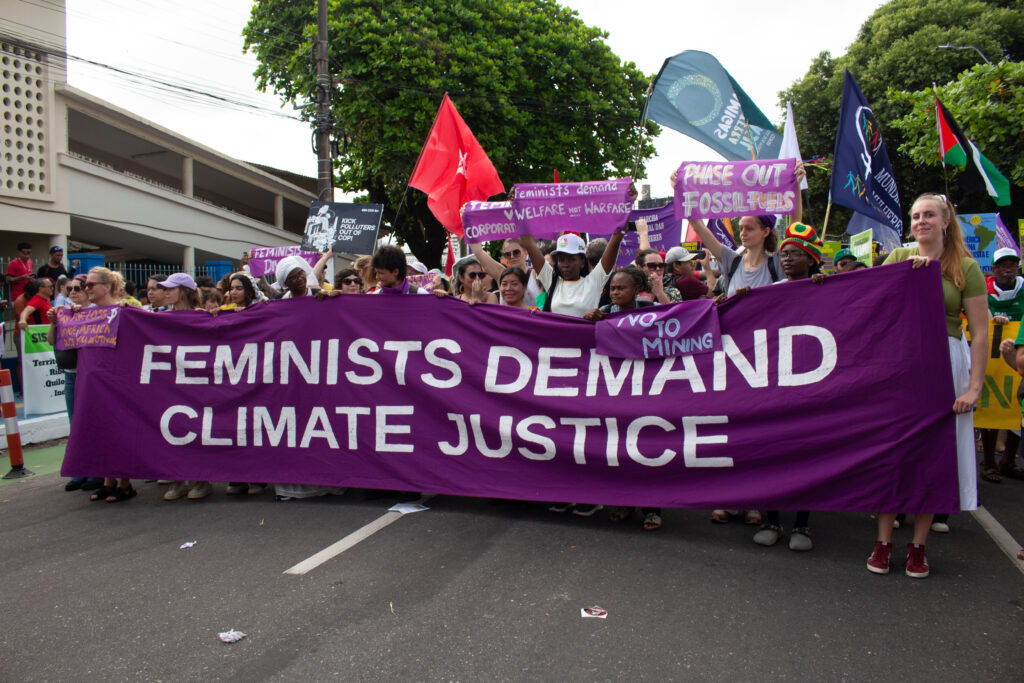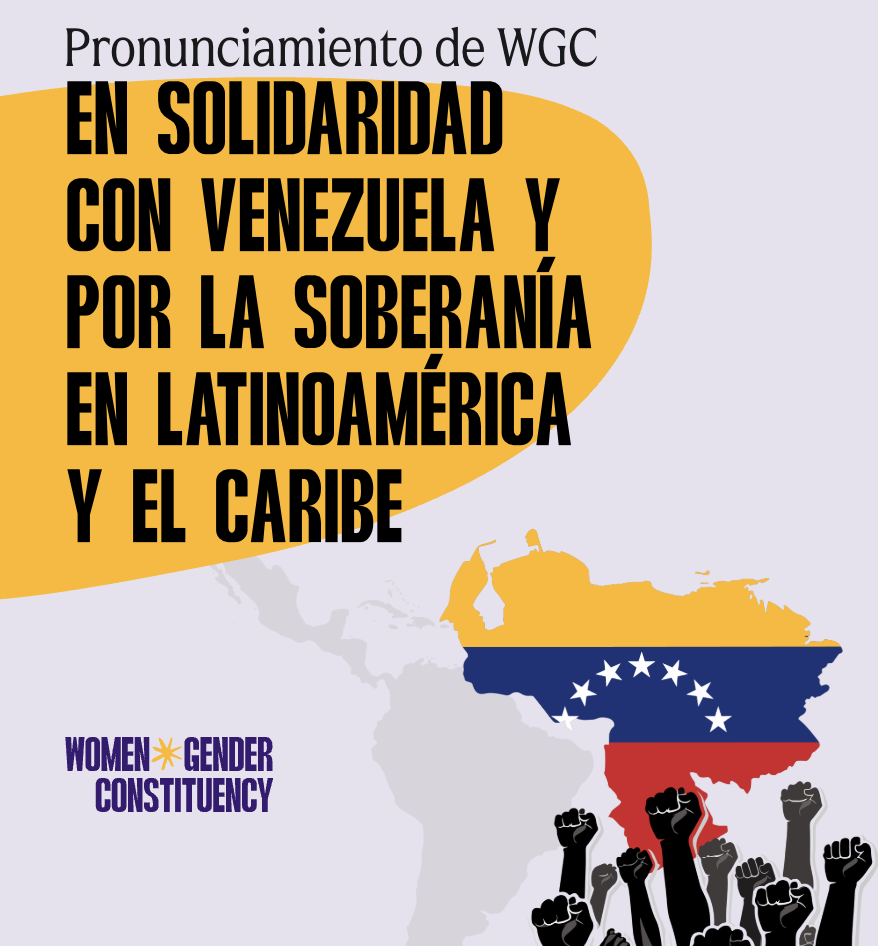
Promoting climate resilience for women through biodynamic farming and water-retaining vegetables
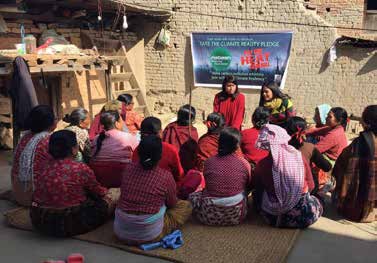
Description of the project
This Aabash Memorial Foundation (AMF) project empowers marginalized women facing climate change and water scarcity in the Khokana community, Nepal, through practical assessments and trainings on environmental resilience. Actions are put in place through knowledge dissemination on climate impacts; along with practical assessments. Women are empowered to be self-reliant in terms of decision-making concerning water-retaining vegetables for improved cropping, knowledge of biodynamic farming systems, climate change impacts, and sustainable measures that would help to build adaptive capacity during water scarcity on their farm lands.
Climate impact
This project focuses on food security and water availability, through biodynamic farming, water-retaining vegetables, and rainwater harvesting. Activities include awareness programs in schools/colleges/women’s groups, group technique discussions, and solar demonstration. Key indicators of affordability and sustainability include increased food supply with water-retaining crops; reduced working hours and time spent to fetch water; less conflicts, and revenue from vermicomposting fertilisers.
Gender impact
The most crucial part of this project is to empower women and girls living in a community with low literacy rate. The project also aims to empower them by teaching about climate change impacts, sustainable solutions, solar demonstration training, rainwater harvesting system, etc. Besides that, women and girls also learn vermicomposting with solid waste and they would sell the compost to generate revenue.
Scalability / replicability
The vermicomposting component of this project could be scaled-up through training. This would reduce solid waste and produce cleaner environment, thus contributing to climate change mitigation. The biodynamic farming system using water-retaining crops could also be widely replicated. It takes less time as well as addresses issues such as natural resource management and building higher adaptive capacity among women to mitigate water scarcity.
read the latest from our network
We work across regions and movements in deep solidarity. Together, we’re building collective advocacy to global problems.

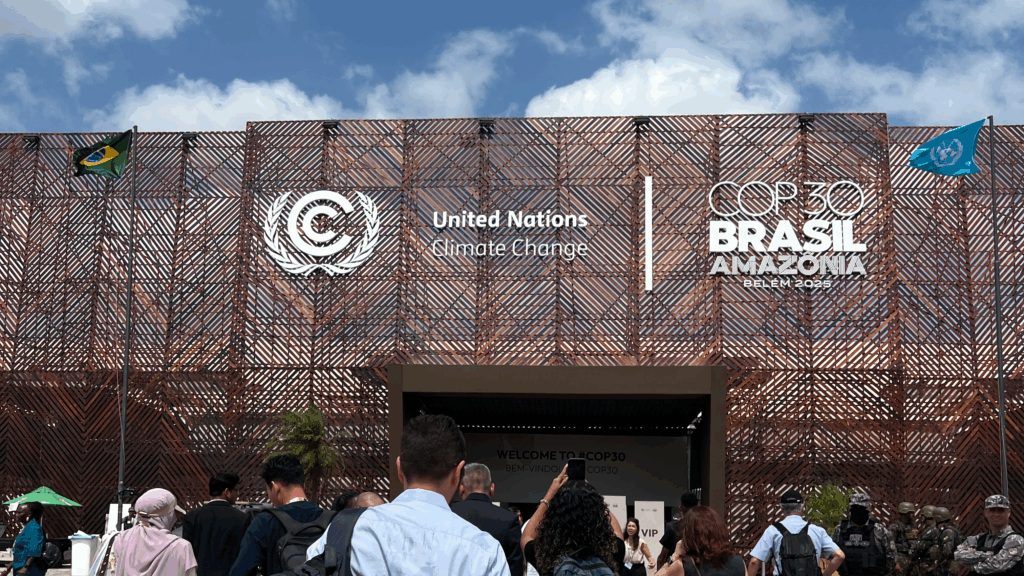

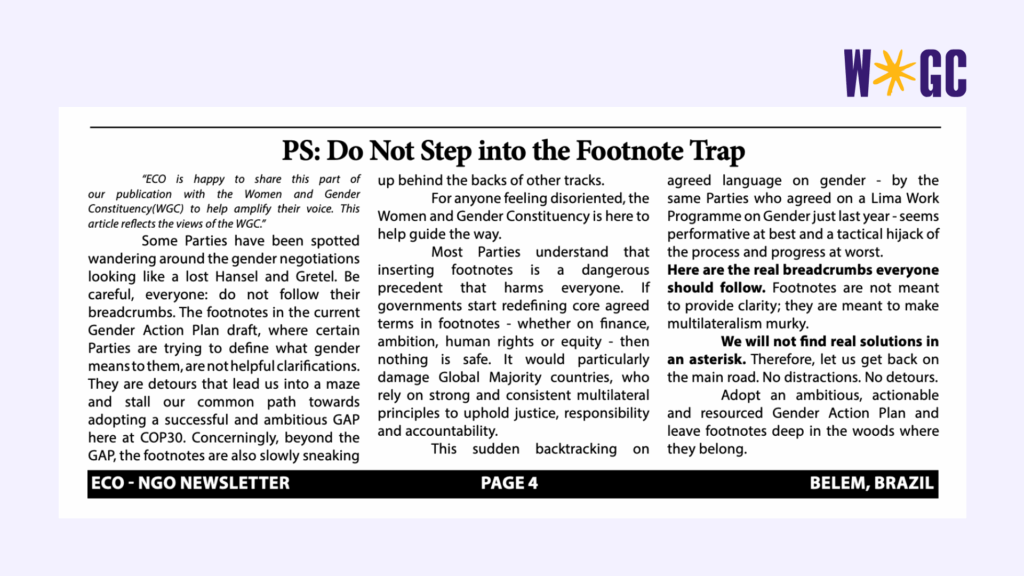
PS: Do Not Step into the Footnote Trap
19/11/2025
